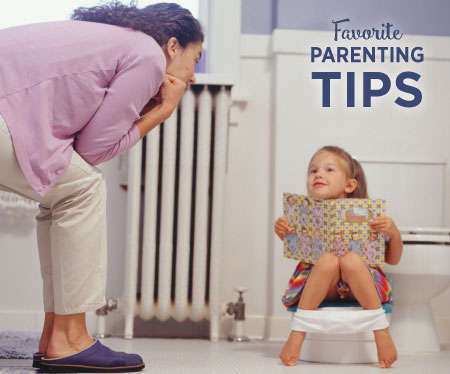
Most children are ready to start potty training around age 2.
Potty training is a breeze for some kids and others, not so much. When children are struggling, simple guidelines can help tame toilet training.
When to start
Gini Woolworth, a nurse practitioner in pediatrics at Marshfield Clinic, said kids should start potty training around age 2.
“They have to be developmentally able to understand the concept of potty training and able to tell you they have to go,” Woolworth said. “They also need to be capable of holding enough urine to recognize the sensation of needing to go.”
If a child starts to hide when they poop, for example behind furniture, it’s a sign he or she recognizes the urge is coming and is ready to start potty training. Sleeping through the night without wetting diapers also indicates a child is physically ready for potty training.
Woolworth said if children are developmentally ready, potty training can be accomplished in a few days.
Bedwetting doesn’t rule out potty training
If children wet the bed beyond average potty training age, it doesn’t necessarily mean they aren’t ready for potty training. Some children wet the bed because they are deep sleepers and have small bladders.
“That’s not a problem, and they should never be scolded for that,” Woolworth said. “They don’t have control when they’re asleep but can absolutely still potty train during their waking hours.”
Motivation matters
A child struggling with potty training may lack motivation for the process.
“Usually, it’s the children who don’t care if they have poop in their diaper,” Woolworth said. “Typically this happens with little boys. Little girls are often more bothered by a dirty diaper.”
Rewarding a child for using the toilet is a good way to overcome potty training reluctance. Have your child put a sticker on a chart marking successful potty uses or wrap little presents to reward your child for success. Any kind of reward system can work.
Get excited when your child successfully uses the toilet. Pretend to call grandma and tell her about the success.
Still Struggling?
If your child continues to struggle with potty training, he or she may be frustrated by lack of control in the process. In that case, Woolworth says it’s best to back off and put the child back into a pull-up.
For kids age 3 or older, introducing consequences for not potty training may be helpful. Hold them back while other kids go to the park or get ice cream.
It’s important to stay calm throughout the potty training process, Woolworth said. Children seek out negative and positive attention, so getting upset with your child for struggling can make things worse.
Related Shine365 posts
Toddlers toddle but why isn’t mine?

